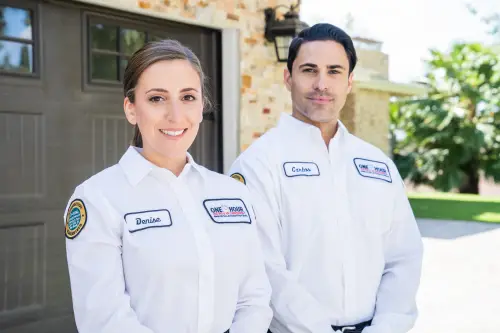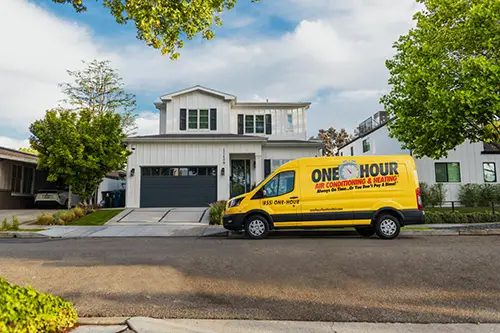Common Signs of a Failing Heat Pump
A heat pump is one of the most essential components of a home’s comfort system. It keeps the temperature just right—cool in summer, warm in winter. But, like all machines, heat pumps can experience wear and tear over time. The trick is knowing when something is wrong before a small issue becomes a costly repair.
If you’re a homeowner, spotting the warning signs early can save you money and stress. This post will guide you through some of the most common indicators that your heat pump could be on its last legs. By understanding these telltale signs, you’ll know when it’s time to call in a professional.
How Does a Heat Pump Work?
To understand when your heat pump is failing, you first need to know the basics of how it works. Your heat pump is responsible for transferring heat from one place to another. When it’s cold, it pulls heat from the outside air and brings it indoors. When it’s warm, it removes heat from your home to cool things down.
Unlike traditional HVAC systems, a heat pump doesn’t create heat; it simply moves it around. This efficiency makes it a popular choice for homeowners. But because it runs throughout the year, it’s more prone to wear and tear. Think of it as the workhorse of your home’s comfort system.
Now, let’s break down the signs that could mean trouble.
1. Unexpected Increase in Energy Bills
If your energy bills suddenly skyrocket, yet your usage hasn’t changed, your heat pump could be the culprit. A failing pump often works harder to maintain the desired temperature, drawing more power in the process. While energy costs fluctuate seasonally, a sudden and unexplained spike is a red flag.
Pro Tip:
Before assuming the issue lies with your heat pump, make sure to rule out other possibilities, like leaky windows or faulty insulation.
2. Uneven Heating or Cooling
Do some rooms in your house feel overly warm while others stay chilly? Uneven temperature distribution is another common symptom. This issue often points to a struggling compressor or failing components inside the heat pump.
A Homeowner’s Example:
Imagine stepping into your bedroom and finding it colder than your living room, even with the thermostat set consistently. If this happens frequently, it’s worth investigating your heat pump.
3. Unusual Noises
Your heat pump will never be completely silent, but new, strange sounds are cause for concern. For example, loud banging could mean a part has come loose while hissing might signal a refrigerant leak. Other noises, like rattling or grinding, can point to mechanical issues.
The bottom line? Never ignore unfamiliar sounds. They rarely get better without help.
Quick Tip:
When you notice odd noises, record them. Sharing the recording with a technician can help pinpoint the problem faster.
4. Reduced Airflow
Weak airflow can make it feel like your heat pump isn’t working at all. A blocked filter, malfunctioning motor, or damaged ductwork could be to blame. Sometimes, reduced airflow is a sign that the system’s performance is on the decline.
Quick Fix:
Check the air filter first. Dirty filters are often the simplest and cheapest problem to resolve. If cleaning or replacing it doesn’t help, the issue might be deeper within the system.
5. Frequent Cycling
Do you notice your heat pump turning on and off more often than it used to? This process, called short cycling, is highly inefficient and can signal trouble. It might be caused by a failing thermostat, refrigerant issues, or an undersized unit struggling to meet your home’s needs. Short cycling not only leads to inconsistent temperatures but also places extra stress on the system, shortening its lifespan.
What to Do:
Call an HVAC technician to inspect the cause. It’s usually a relatively straightforward fix.
6. Ice Build-Up (Even in Summer)
Seeing ice on your heat pump coils during winter isn’t unusual. However, if the ice doesn’t melt away or appears during the warmer months, there’s likely a problem. Blocked airflow, low refrigerant levels, or malfunctioning defrosters are common causes.
Ice build-up can cause permanent damage to your system if left unchecked. Removing it yourself is risky, as it can damage the unit further. Instead, a professional technician should diagnose the issue.
Watch Out:
Never pour hot water on the ice. It can crack components or worsen the situation.
7. Strange Smells Coming from the Unit
If you begin to notice odd odors emanating from your heat pump, don’t ignore them. Burning smells might be signs of wiring issues, while musty odors could mean mold or mildew growth inside the system. Mold isn’t just bad for your heat pump—it’s bad for your health.
Proper maintenance can often prevent these problems, so consider this a nudge to schedule regular service.
Friendly Reminder:
Turn off the unit immediately if you smell burning. It’s better to be safe than sorry.
8. It’s Just Old Age
Most heat pumps have a lifespan of about 10 to 15 years. If your unit is approaching or exceeding this range and showing performance issues, it might be time to consider a replacement. Repairs on older systems tend to cost more, and the performance may never return to its original state.
Technology has also significantly advanced in recent years, meaning newer models are likely far more energy-efficient and reliable. While replacing a heat pump can be a significant investment, it’s one that pays off with greater comfort and energy savings.
A Thought:
If your system is nearing its twilight years, it’s worth exploring a newer model to avoid an emergency breakdown.
Schedule Maintenance to Stay Ahead
One of the best ways to avoid a failing heat pump is through regular maintenance. Annual checkups allow technicians to catch small issues before they become big problems. This keeps your heat pump running efficiently and prolongs its lifespan. Think of it as tuning up your car it’s an essential step for any homeowner.
Set a reminder to have your heat pump serviced at least once a year, ideally before the summer or winter season hits.
When It’s Time to Call an Expert
Spotting the signs early is only half the battle. The next step is reaching out to a trusted professional to address the issue. Attempting to fix complex heat pump problems yourself can often cause more damage.
By getting ahead of the issues, you can reduce downtime, avoid costly repairs, and keep your home comfortable year-round.
Trust your instincts—if something feels off, it’s worth investigating. Don’t wait until your heat pump stops working completely to take action.
